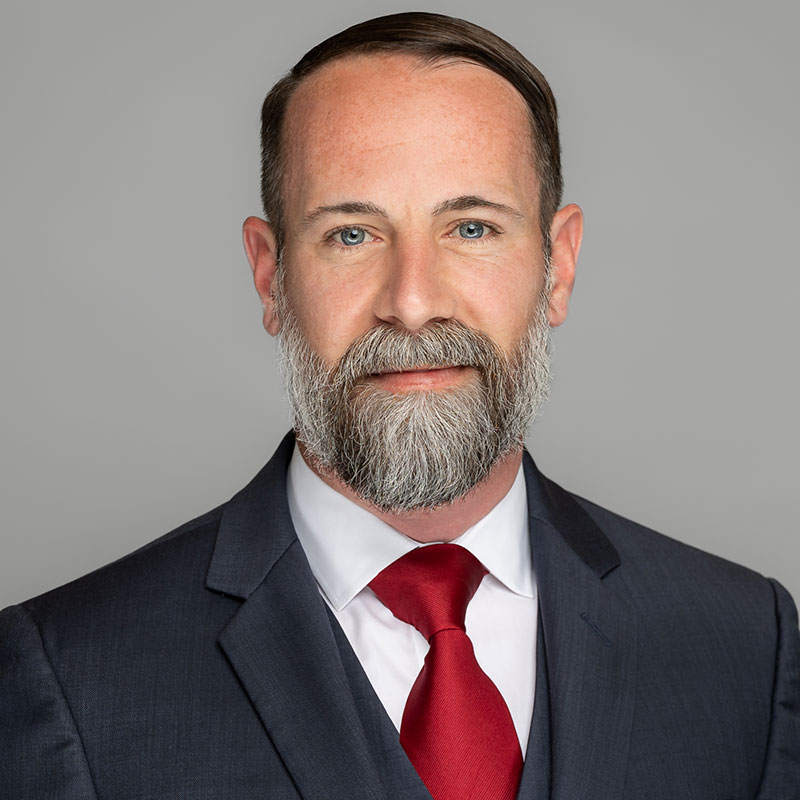
UA Online student William Jones built a bridge from his Master of Science in Population Health Sciences to pursue an Executive EdD in Higher Education Administration.
William Jones, of Hoover, Alabama, is always pursuing education. He’s been in school consistently for the past 20+ years, and he has the initials in his email signature to prove it — MBA, MS, MSN, RN, CAVRN, NE-BC.
He also has a quote there — “‘The best thing you can do for a person is to inspire them. That’s the best currency you can offer — inspiration,’ Ermias Joseph Asghedom.” Asghedom is perhaps better known as the rapper Nipsey Hussle. It’s a subtle discernment that perfectly reflects who William is.
There’s no pretentiousness. Just an easy laugh and easier conversation that invites others in. His curiosity shines when paired with his enthusiasm to lead others well. That’s what inspires him to continue learning.
William is a full-time nurse manager within UAB’s Tele-ICU office, sitting on boards in Birmingham and staying on top of developments at the hospital. As a hospital employee, he’s eligible for tuition benefits at The University of Alabama at Birmingham, a separate university under The University of Alabama System.
“I really wanted to go to UA. I love all things Alabama. I love the University. And it’s free here at UAB, so some people think I’m absolutely crazy.”
Crazy or not, William gained a deeper understanding of the community complexities of health care through UA Online’s master’s in Population Health program. He owns a great responsibility to meet his patients in the moment to provide better care.
“The public health lens was hugely beneficial for me, because it expanded my conceptual toolkit. It gave me a language to navigate some of the complex stuff we see in health care environments. It challenged me to question, redesign and advocate. I transitioned from a problem solver to a system thinker with an eye towards sustainability and equity-centered interventions.”
William’s critical thinking and leadership skills flourished at work while he studied in the program.
“As a working professional, a big piece of it is the accessibility of [UA Online]. The flexible format helped me to integrate my real-time insights from the classroom directly into practice and vice versa. Things that were happening at the hospital, I was able to carry into the classroom and give us a unique circumstance to talk about and bounce things off my peers that may not do what I do. That has built on my foundational understanding of population health and expanded into my practical application across health systems. The program helped me bridge that gap between practice and theory, informing my leadership style.”
He credits the community health sciences professors for facilitating his shift in perspective.
“I had some fantastic professors that really stuck with me and challenged me. They didn’t just disseminate knowledge; they facilitated a thought-provoking dialogue and allowed for critical thinking and interdisciplinary exploration. I can’t say enough good about the program. I got exactly what I sought.”
With three bachelor’s degrees and three graduate degrees to his credit, William is now pursuing his first doctorate, an EdD in Higher Education Administration as part of the College of Education’s Executive Cohort. It’s a shift in academic focus that follows William’s professional transition from clinical responsibility to leading people.
“You really have to understand people to lead people. There’s tremendous value in having more information. I don’t want a room full of me to all shake their head yes. We would miss the question we should be asking that we’re not. I want someone to raise their hand and challenge, ‘I don’t see it the same way as you. In fact, I don’t understand why you see it that way.’ That gives us something to dive in on and really reflect on what we’re doing.”
To reach this point, William has leaned on the instruction from the MPH program.
“My professors fostered a tremendous culture of scholarship and curiosity. They encouraged us not to just seek the answers but to better frame a question, which has helped me in my doctoral program. It wasn’t necessarily about getting the answer but more of the process to ask better questions for clear outcomes.”
William’s application of these lessons is clearly leading to his success in the doctoral program. He was named the 2025 Outstanding Student in Higher Education Administration — Executive EdD for the work that he has already completed in the program. “My hope is that I take what I’ve learned in these programs and help shape and give the same trajectory of opportunities and options to the people that I’m leading in my space.”
